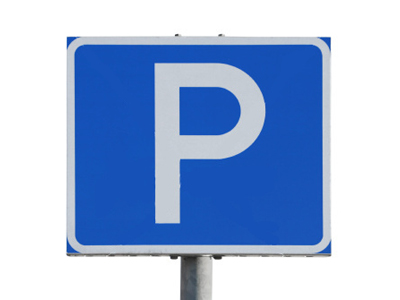President Andrew Wachtel clarifies questions about AUCA parking policy
September 18, 2015
After September 21, 2015, parking at the American University of Central Asia (AUCA) will no longer be free. There will be a total of 70 parking spaces. One parking space will cost $100 per academic year.
Many students, faculty, and staff have raised concerns about the new cost of parking. AUCA president Andrew Wachtel, who has already paid for his parking space, was interviewed to clarify the most common questions.

- What are the pros and cons of paid parking for AUCA students, faculty and staff?
If people want convenient spaces on a well maintained road they can pay to park. If they want to avoid paying they are welcome to park on a less secure site and a less well maintained road. People can choose what they will. Personally, I have chosen to pay for a parking space on the east side of the campus. But that is my personal choice and everyone is free to do what he/she wants.
- Why does AUCA need paid parking?
First of all, Bishkek as a whole needs paid parking. As anyone who attempts to drive in this city will tell you, because people can pretty much park anywhere they like with no regulations, they do. This causes all manner of problems; most specifically it makes it impossible to get around town. Eventually, Bishkek will realize this (as Moscow finally did) and then many congestion problems will be solved. On the AUCA campus, we absolutely need to limit the number of cars parked on the east side of the campus to the number of spaces we have (around 70) because that road is also the fire lane and we must absolutely make sure that it is always possible for a fire engine to pass through it. The easiest and most practical way to do that is to issue parking permits for the spaces we have. Once we are doing that, and given that the spaces on the east side of the campus are somewhat more desirable because we went through the expense of building a nice paved road, putting in lighting, etc., it makes sense to have people who want to take advantage of the convenience of parking there pay for a small portion of the costs of maintaining that infrastructure. Certainly it makes more sense to charge the people who park there a small amount than to have the cost of parking infrastructure paid by people who walk, bike, or take public transportation to campus. I have said from the very beginning, however, that we are not currently forcing anyone to pay for parking. If they don’t want to, they are welcome to park on the west side of the campus.
- What kind of responsibility does the university take over the cars on the paid parking?
Because the road on the east side is our own, cars parked there are much safer than those parked on the west side, which is along a public road that we have no control of. That said, we do not keep a guard especially over the parking area and we cannot be responsible for small dings and nicks that may be caused by parkers who are not careful of their property and others. But this is normal. We did not guarantee the safety of cars in front of the old building either. If people want a fully guarded parking lot, they will need to be willing to pay substantially more. If people want to pay another $100 a piece, we can afford to hire a guard who will watch over the lot at all times.
- Will the security on the parking be carried out around the clock? If not, at what time of the day?
Paid parking is only on week days from 8 until 8. After that and on weekends, anyone can park on the east side of the campus without a permit. There is security at the building at all times. However, we do not have cameras on the parking places per se, and especially at nights and weekends, when there are few people around, there is little security on the territory of the campus (except inside the building).
- Are there any plans to expand the number of parking spaces?
Not at present. However, I should note that at pretty much every U.S. university there is no such thing as free parking. Eventually, we might decide to make improvements on the road on the west side of campus and if we do, we might introduce paid parking there. But that will not likely happen in the near future and will likely only happen if our campus community asks for it.
